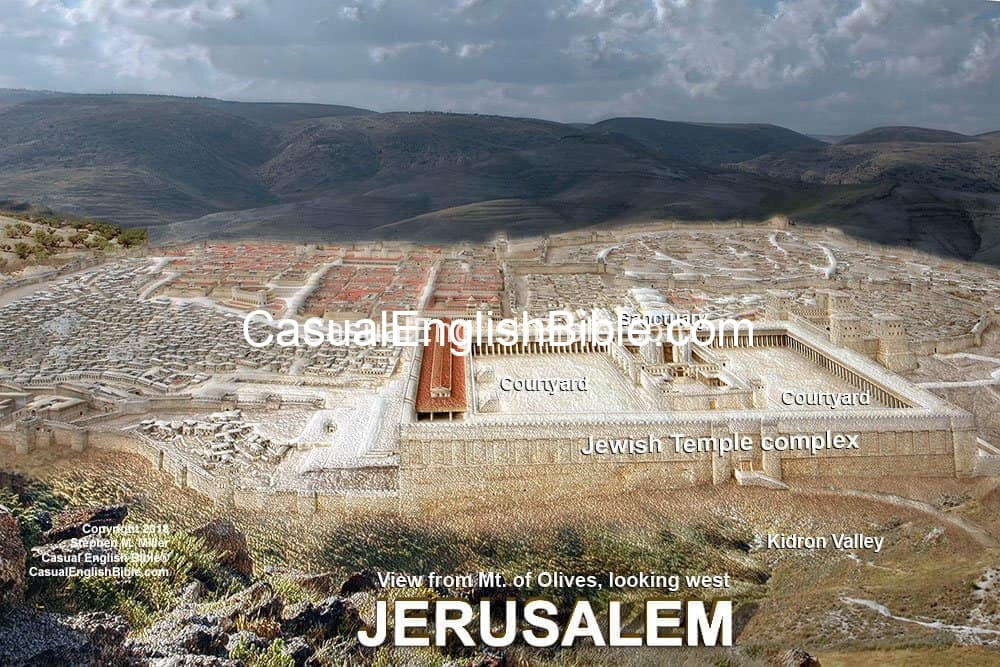Isaiah 62
A Savior to the rescue
The world will see Jerusalem rise again
1I’m speaking out for you, Jerusalem.
I won’t stop talking until you’re safe. [1]
Until your victory is obvious to everyone.
Kings will witness your glorious might.
And God will give you a brand new name. [2]
3You’ll be a beautiful crown the LORD will wear,
And a powerful scepter he’ll hold in his hands.
A ghost town no more
4They’ll finally stop calling you a ghost town
In the desolate land of ruins.
Now you’re the city God loves
In a land that’s married to the LORD.
Your people build their lives around you.
And like a groom celebrates a wonderful wife,
God will celebrate you.
6I’ve posted guards on the city walls,
A constant reminder that you’re safe.
Now a word to those always in prayer:
7Keep praying until Jerusalem’s secure
And famous all over the world.
God’s promise: Never again
8The LORD made a promise,
A vow he would keep:
I’ll never again
give your food to your enemies.
They’ll never again drink your wine.
And thank the LORD for their harvest.
Those who collect grapes from the vine
Will drink wine in Jerusalem’s Temple.
The Savior is coming
10Open the gates of Jerusalem.
Clear a path for the crowds.
Repair the roads, remove the debris,
And raise your banner high.
Tell the people of Jerusalem,
“Your Savior is coming to the rescue.
He’s bringing you a handsome reward,
And giving you back what you lost.” [3]
12Your citizens will be known as the holy ones,
The people that the LORD himself saved.
Everyone will know God searched and found you,
The people of the city raised from the dead. [4]
Footnotes
The writer doesn’t describe the setting. No surprise there. Many scholars say the poetic prophecy may refer to when the Jews were returning to the ruins of Jerusalem, from Babylonian exile in the mid-500s. They were starting the work of rebuilding. Apparently, they had already repaired the walls (62:6). But they had hostile neighbors to worry about. Some neighbors tried to stop the Jews from rebuilding the walls (Nehemiah 4:7-8).
Rulers sometimes renamed people, to mark an important event or simply to show that they had the power to do it. Bible writers report God and Jesus each renaming people to commemorate an event. God renamed Abram as Abraham, which is Hebrew for “Father of Many” (Genesis 17:5). That marked God’s promise to give Abraham many descendants. Jesus renamed Simon “Cephas.” (John 1:42). This Aramaic name translated into the Greek equivalent as “Peter.” It’s a bit like “Stephen” in English is “Esteban” in Spanish. Peter means “Rock.” And Jesus said he would build his church on this rock. Peter preached the sermon that launched the Christian movement and gained more than 3,000 followers (Acts 2).
Persians not only freed the Jews from Babylonian captivity, they sent them back to Jerusalem with supplies to begin rebuilding the city (Ezra 2:68-69; Nehemiah 2:8).
More literally “the city no longer deserted.” But many Christians say they see not only a prophecy of someone saving and restoring Jerusalem in the 500s BC. They say they see a foreshadowing of Jesus, Savior of the world, who came riding into Jerusalem on a donkey, to the cheers of a crowd (Matthew 21; Mark 11; Luke 19; John 12). Some Jews at the time read passages like this and pinned them to their hopes for a kingly warrior who would free them from the Roman occupying force. No one seemed to anticipate the kind of Messiah and Savior God sent instead, a Savior whose salvation wasn’t limited to this lifetime.
Discussion Questions
- Sorry, there are currently no questions for this chapter.











